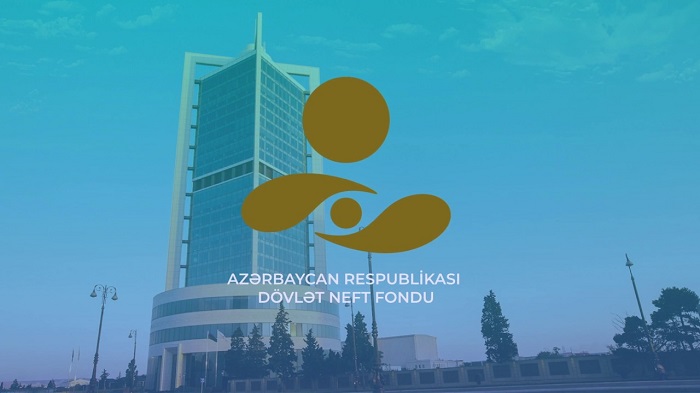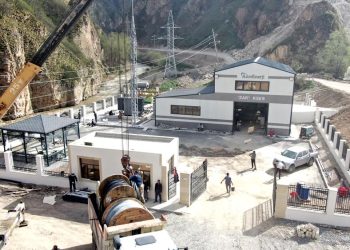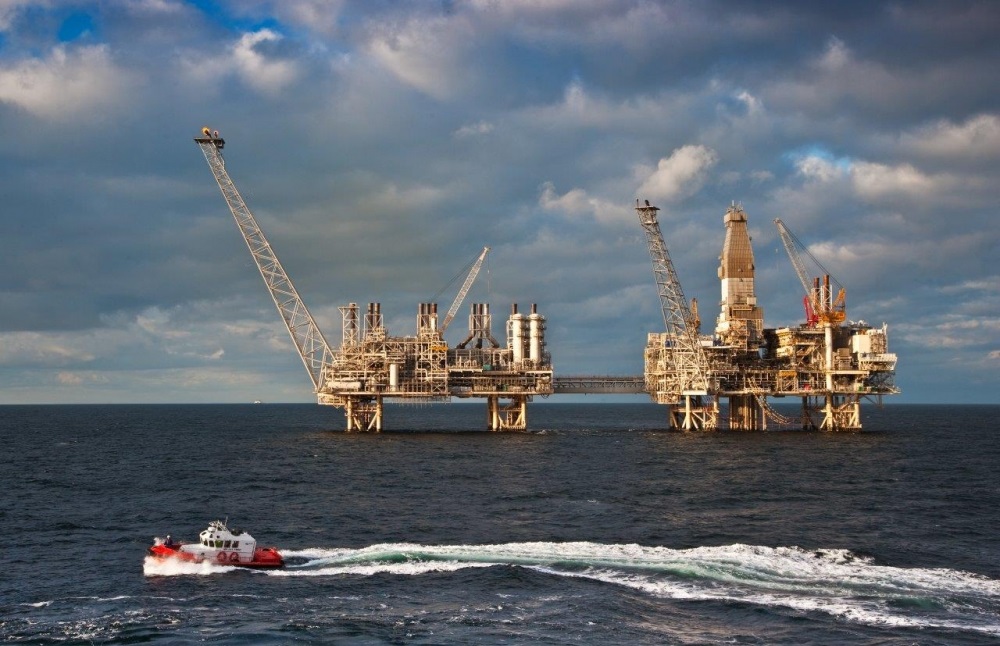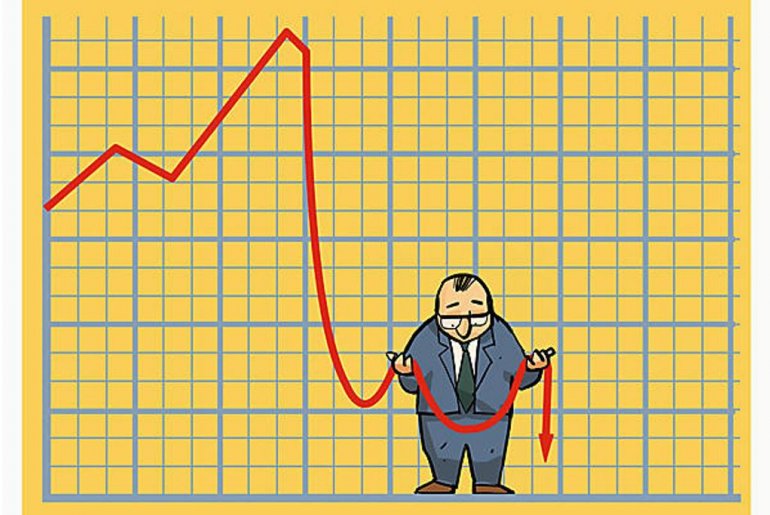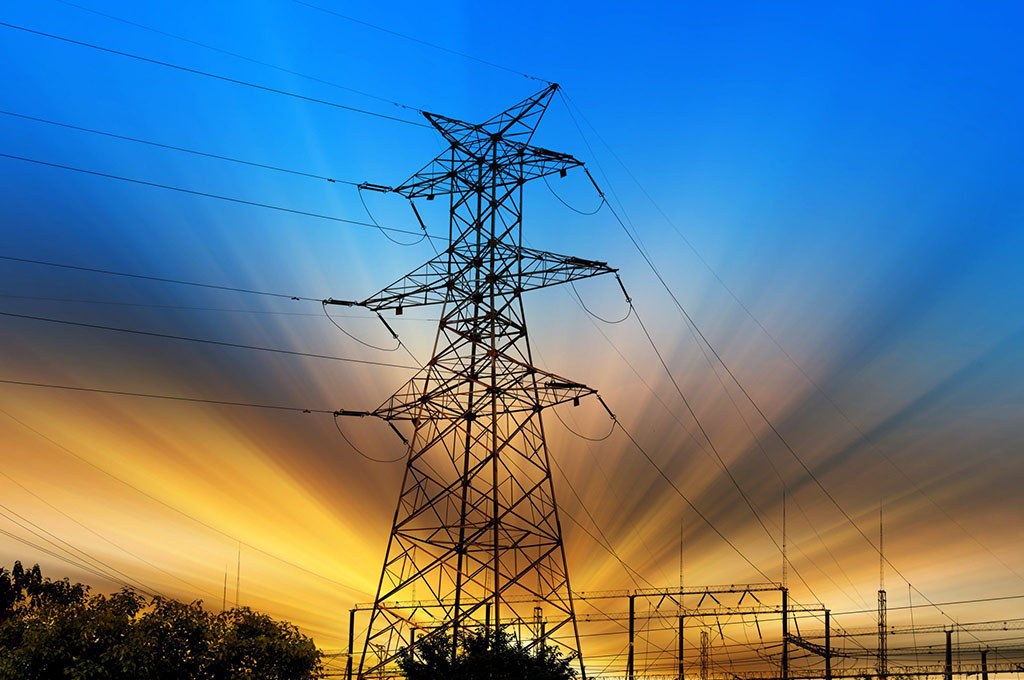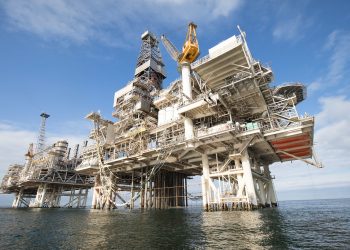The world’s favorite hotbed of instability, the Caspian Sea, has finally earned the right to be called, well… a sea. This is the unexpected epiphany of the September 29th Caspian Sea Summit that brought together the rulers of Iran, Russia, Azerbaijan, Kazakhstan and Turkmenistan to the cozy coastal Russian city of Astrakhan. The usually yawn-inducing Summit, now in its fourth edition, ended the 18-year old debate on whether the Caspian should be legally seen as a sea or a lake. Granted, questions of geographical metaphysics don’t seem to make a very fertile ground for momentous paradigm shifts in the way “the world hangs together” but as it turns out, in this case they do. And here’s why.
The Caspian Sea region is a very particular one, not least because some 48 billion barrels of oil and over 292 trillion cubic feet of natural gas await recovery by the five riparian countries. After the fall of the Soviet Union, the notion of determining its unclear legal status resurfaced with a vengeance in the tug-of-war that accompanied the retreat of Moscow’s influence from the region. Historically, Russia and Iran supported the idea of a Caspian lake, ruled under a condominium regime where all states would equally share its resources. If the Caspian were classified as a sea on the other hand, each state would literally get its own slice of the seabed and exclusive use of whatever it lies beneath. The problem is that under this definition, Kazakhstan, by virtue of having the longest coastline, would get more than half of the sea’s resources. Complicating things further, in the former case, Iran would be the big loser since its piece of the Caspian pie is poor in gas and oil. But the Gordian knot was finally untied, as the five leaders emerged victorious from the Summit, declaring the Caspian a “sea of friendship and peace” – emphasis on sea.
According to the Declaration, which comes with clear formulations on the delimitation of the seabed, every country will have exclusive sovereign rights to a 15-mile area. “This is a real breakthrough” a smiling Putin concurred. While the statement of principles has been agreed upon, the final document will only be signed at the next Caspian Summit, slated to happen sometime next year in Kazakhstan. The zesty gathering also concluded with a chest-thumping promise not to allow foreign militaries to set up camp in the Caspian region, an obvious snub at NATO’s aspirations with Azerbaijan.
Meanwhile, halfway across the world, European officials were probably rubbing their hands in satisfaction once the news transpired – because buried deep in questions of geographical metaphysics lurks Europe’s answer to one of its deepest woes: how to reduce Russia’s influence in the affairs of the continent while still securing its energy supply. And the answer is oft neglected, oft forgotten Turkmenistan, the real winner of the whole shebang.
Wait, who?
Home to the world’s sixth largest natural gas reserve and a burning desire to diversify its exports away from its overbearing northern neighbor, Turkmenistan seems a perfect candidate to scratch Europe’s Russian itch. Its production capacity of 2.3 Tcf in 2012 dwarfs 4 times over Azerbaijan’s. Alongside its bigger neighbor, Uzbekistan, the two Central Asian states have been most hostile towards Putin’s new Eurasian vision looking with increased anguish as the Ukrainian crisis unfolded. In the past decade, both countries have sought to build stronger ties with China and India, shifting their gravitational center away from Moscow’s wills and whims.
With the legal status of the Caspian squared, Turkmenistan can finally start negotiations with Azerbaijan over the building of the Trans Caspian Pipeline (TCP), the long mooted but time and again postponed 30-billion-cubic-meters-per-year project to send Turkmen gas to Europe via Turkey. Even if the two presidents failed to reach an agreement during the Summit, allegedly over environmental concerns, it’s only a matter of time before all the nuts and bolts will be hammered out. Speaking on the sidelines of the Summit, Turkmenistan President Gurbanguly Berdymukhammedov reiterated that Turkmenistan is “firmly committed” to seeing this project through.
At 300-kilometers long, this east-west pipeline would first touch ground in Azerbaijan, before being connected to European markets via the Trans-Anatolian Natural Gas Pipeline (TANAP), currently under construction in Turkey. Once built, the pipeline will be the fountainhead of Europe’s diversification efforts, throwing a spanner in Moscow’s capacity to constantly meddle in its politics.
“Caspian gas is our salvation”
This is how Gunther Oettinger, the outgoing European commissioner for energy, once referred to the prospect of tapping into the fertile Caspian seabed in order to break Russia’s grip over European markets. With consumption levelling out at 541bcm last year, of which some 162 bcm came from Russia, natural gas is a fundamental component of Europe’s energy mix. Adding into the equation Moscow’s boat-rocking threats to cut off gas exports flowing through Ukraine (roughly 80bcm), Brussels is more adamant than ever to diversify away from Russian-flavored exports.
An immediate solution would be for Norway and North Africa to crank it up a notch and boost their exports by a paltry 25bcm – the current spare capacity of pipelines coming to Europe. The only other countries that could successfully fill the gap left by ditching Gazprom are both in the Caspian: Azerbaijan and Turkmenistan. In the long run, other options will arise: Cyprus sits on a massive offshore gas pocket of 3.4 tcm, or the equivalent of seven years’ worth of total European consumption. According toBloomberg, the European Union has enough gas trapped in shale to free the bloc from reliance on Russian energy supplies for about 28 years if only the constituent countries would agree. But to quote Keynes, “in the long run, we are all dead”. Only by throwing Caspian gas in the energy mix today can Europe effectively wean itself off of Russian gas.
Stacking turtles in the Caspian
Now, any sensible person would ask one simple question – why would Russia fold its hand to Europe? By agreeing on the Caspian’s legal status, Moscow has essentially just handed Turkmenistan carte blanche to proceed with the TCP, which, once built, will put at risk Gazprom’s own exports. Has Putin finally lost his “geopolitical marbles”? Not quite.
Related: Russian Shale Boom Unlikely As Sanctions Force Another Company Out
What if one were to turn the issue on its head? In other words, since Europe is slowly but surely diversifying away from Russian gas, how can Moscow make sure it won’t lose its capacity to influence the Union’s energy security? Simple. Since the Caspian is Europe’s single best bet for new natural gas imports, all Putin needs now is to find a way to call the shots in the Caspian.
This would explain the Summit’s firm declaration to prevent foreign troops from setting up camp in the Caspian. Russia is afraid of the prospect of losing more ex-Soviet republics to the West, like it happened with Ukraine, and shutting NATO out of the region would greatly increase Kazakhstan, Azerbaijan and Turkmenistan dependence on Moscow. On a related note, the Summit also hashed out vague plans for establishing a free trade area in the Caspian, pulling it even closer to Russia’s orbit.
Essentially, with a stroke of a pen, Putin’s own “Pivot to Asia”, revived with the $400 billion historic deal struck with China over natural gas deliveries, just got a reinforced foothold in the Caspian region. This is Russia’s way of extending a carrot to the very countries the West is desperately courting for their massive gas resources. And since pipelines don’t get built over night, Moscow has ample time to create more powerful levers of influence in their internal politics. Therefore, hemmed in between Iran and Russia, Turkmenistan and Azerbaijan could very well be much easier to control than troublemaking Ukraine. Proceeding with the TCP in spite of Russian “opposition” would therefore simply play right into Moscow’s game.
Just like that famous anecdote of a flat world standing on the backs of an infinite number of turtles stacked ‘all the way down’, attempts at explaining the Caspian have very often failed to notice the turtles lurking underneath the ones closer to the top of the stack. It would be an unforgivable exercise in political reductionism to simply assume that this year’s Caspian Summit has not been one of the most far-reaching and game changing regional developments of the last 20 years. The Great Game of the 19th century has been suddenly rekindled, but only this time Russia seems to have the upper hand
By Scott Belinksi
of Oilprice.com





